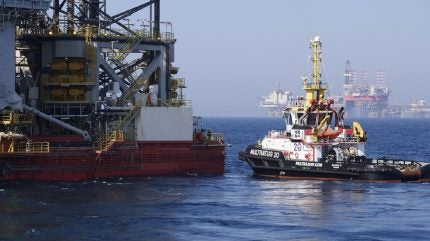
Energy giant bp is in talks with the governments of Venezuela and Trinidad and Tobago regarding the development of a shared offshore gas field, Manakin-Cocuina, reported Reuters.
The move is part of bp’s strategy to increase its natural gas production in Trinidad to feed into the Atlantic LNG liquefied natural gas (LNG) export facility.

Discover B2B Marketing That Performs
Combine business intelligence and editorial excellence to reach engaged professionals across 36 leading media platforms.
BP was quoted by Reuters as saying in a statement: “BP can confirm that it is in discussions with the government of Trinidad and Tobago and the Bolivarian Republic of Venezuela on the potential development of gas resources in the Manakin-Cocuina field.”
Over the past five years, bp’s gas production in Trinidad has dropped from more than 2.2bcf/d to approximately 1.2bcf/d.
Situated along the maritime border of Venezuela and Trinidad, the Manakin-Cocuina field is estimated to hold more than 1tcf of natural gas.
Venezuela’s state-owned oil company, PDVSA, has expressed interest in the project through social media, indicating potential plans to grant exploration and development licences for the non-associated gas within its territory of the shared field.

US Tariffs are shifting - will you react or anticipate?
Don’t let policy changes catch you off guard. Stay proactive with real-time data and expert analysis.
By GlobalDataThe Manakin-Cocuina field was unitised in 2015.
The latest negotiations follows the easing of the US stance on Venezuela, paving the way for potential collaborative energy projects that had been suspended since the sanctions were imposed in 2019.
Last year, Reuters reported that Venezuela was urging companies engaged in a long-stalled offshore gas project, Plataforma Deltana, to start fresh research and operations.
The Plataforma Deltana is divided into five blocks and extends into the waters of Trinidad and Tobago.
At that time, Venezuelan President Nicolas Maduro was looking to revive the project with the help of PDVSA and private players such as BP, Chevron and Shell.





